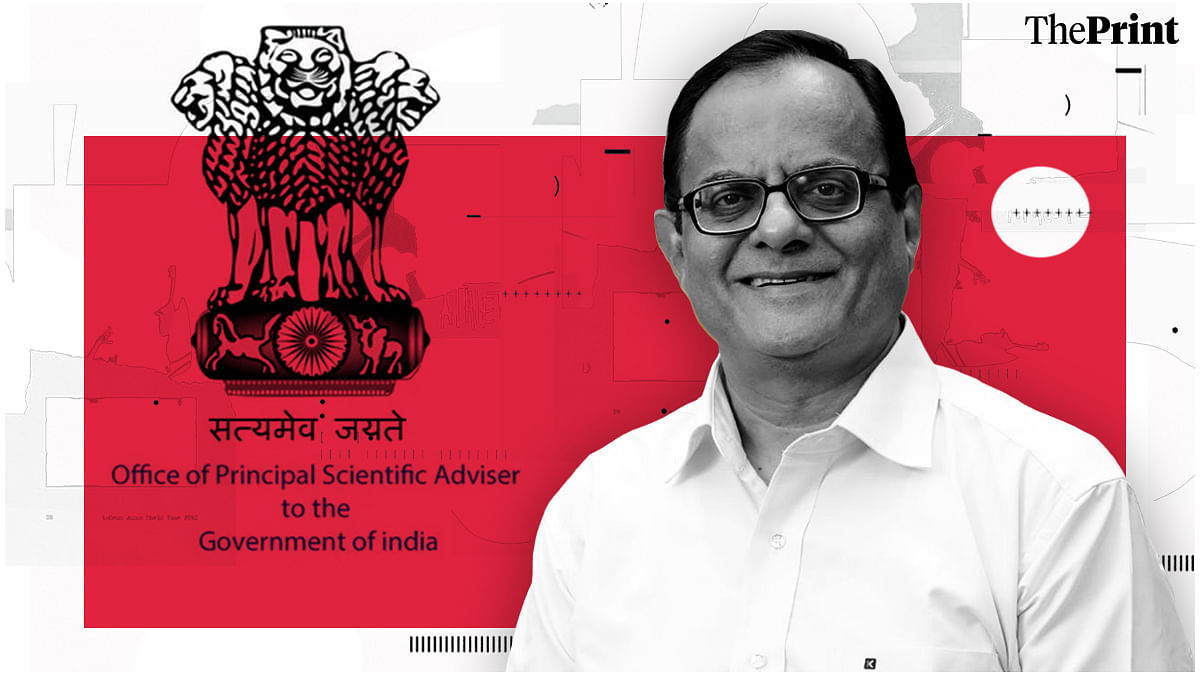New Delhi: The success of Chandrayaan-3 has turned the national — and international — gaze not just on ISRO, but on India’s start-ups and their road to discovery.
In an exclusive interview with ThePrint, Principal Scientific Adviser Ajay Sood said he is happy that the consultations for the country’s newly drafted National Deep-Tech Start-up Policy are taking place at a time when India and the world are excited about the successful lunar landing.
The policy aims to address existing gaps in India’s start-up ecosystem, with measures to ensure a secure supply of critical materials and perks for investing in women as well as having a diverse workforce.
“We have been able to do this feat [Chandrayaan-3], achieve this glory at a fraction of the cost,” Sood said. “Learning about ISRO’s success and how the Indian space programme has been evolving for more than 50 years is an exercise in itself,” Sood said.
India’s space economy is set to grow to $45 billion over the next 10 years, and start-ups will play a key role in this growth story.
“Deep-tech start-ups and space exploration are so intimately connected,” Sood said, adding that ISRO’s success in space missions involved the contribution of deep-tech start-ups as well.
The Prime Minister’s Science, Technology and Innovation Advisory Council (PM-STIAC), in July last year, recommended the creation of a national consortium and a working group to propose a comprehensive policy framework to strengthen the Indian deep-tech start-up ecosystem, and address its needs.
“Any start-up that is based on significant scientific discovery or engineering innovation will be termed a deep-tech start-up,” Sood said.
Space, quantum computing, medical devices, and artificial intelligence (AI) are some examples of what may be classified as deep tech.
Also Read: ‘India don dey Moon now’: How world media reported Chandrayaan-3, from Pidgin to Queen’s English
‘Numbers less than desirable’
Chaired by Sood, the national consortium includes high-level representatives from the Department for Promotion of Industry and Internal Trade (DPIIT), Atal Innovation Mission (AIM, a government initiative to encourage innovation and entrepreneurship), federal think tank NITI Aayog, Ministry of Electronics and Information Technology (MeitY), Department of Biotechnology (DBT), Indian Space Research Organisation (ISRO), National Security Council Secretariat (NSCS), Defence Research and Development Organisation (DRDO), National Association of Software and Service Companies (NASSCOM), Confederation of Indian Industry (CII), and Federation of Indian Chambers of Commerce & Industry (FICCI).
The office of the principal scientific adviser is entrusted with the formulation of this policy with key stakeholders.
“The deep-tech start-ups have been happening in our country and abroad, but the numbers have been less than what would be desirable for a country which wants to advance technologically at a much faster rate,” Sood said.
While many incubation centres have already been successfully translating research at public institutions into viable companies, the new policy aims to specifically address the needs of the deep-tech start-ups.
Sood said the development of the draft policy was an interactive process — according to him, it took shape after over 230 consultations to understand what the issues and aspirations of start-ups are.
One of the demands that came up was better research facilities, and access to expensive scientific instruments.
“It’s not easy for them to invest, because start-ups are really on a very frugal budget. How do we enable that?” Sood said.
Under the policy, the PSA’s office is looking to offer such start-ups improved access to scientific instruments present in public research institutions.
Investing in diversity
Among the policy’s objectives is to encourage venture capitalists to invest in women-led start-ups. It also looks at monitoring diversity and equal opportunity within start-ups.
“How we will do it is something we are still trying to work out. But perhaps there can be ‘brownie points’ for meeting certain diversity parameters,” Sood said.
The policy also notes the need to map critical minerals and strategic materials that many deep-tech start-ups will require in the future.
“If they (start-ups) are based on technology, they need these critical minerals. They can be quite expensive and there can be a supply-chain issue,” Sood said.
Increasing patent registration
The policy also aims to identify research that has the potential to become a viable business, and encourage patent registration through training for scientists on how to register intellectual property.
“Earlier, we did not have a patenting culture in India, because we were just doing something and leaving it and maybe publishing it, but we were never protecting the intellectual rights,” Sood said.
However, he added, things have improved over the years.
The national consortium last met on 24 July 2023, deliberated the draft policy document, and suggested releasing it for public consultation after incorporating review inputs and further recommendations.
Accordingly, the revised policy draft has been released for public consultation, and will be open for feedback until 15 September.
(Edited by Sunanda Ranjan)
Also Read: India releases list of 30 critical minerals crucial for ‘economic development, national security’

